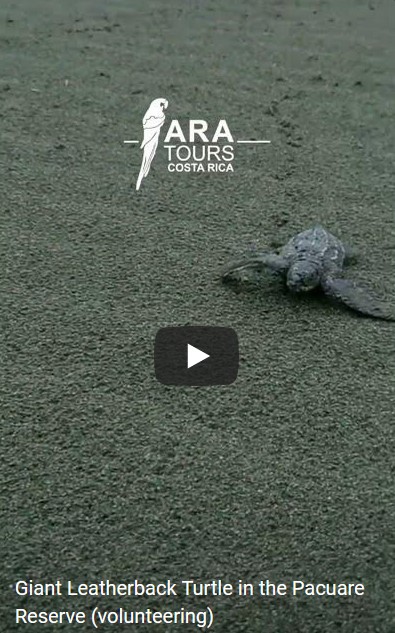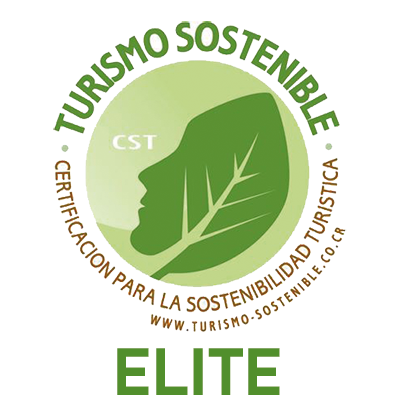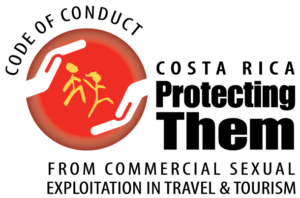Pacuare Reserve
The awareness that our environment has a direct impact on us and that we have a direct impact on our environment is greater today than ever before. For us here at ARA Tours, working sustainably has been a central and important issue since we started. This is true today and will remain so in the future.
For this reason, we actively and regularly participate in or organize volunteer work for the benefit of our environment. In this article, we would like to talk about one of our more recent activities.
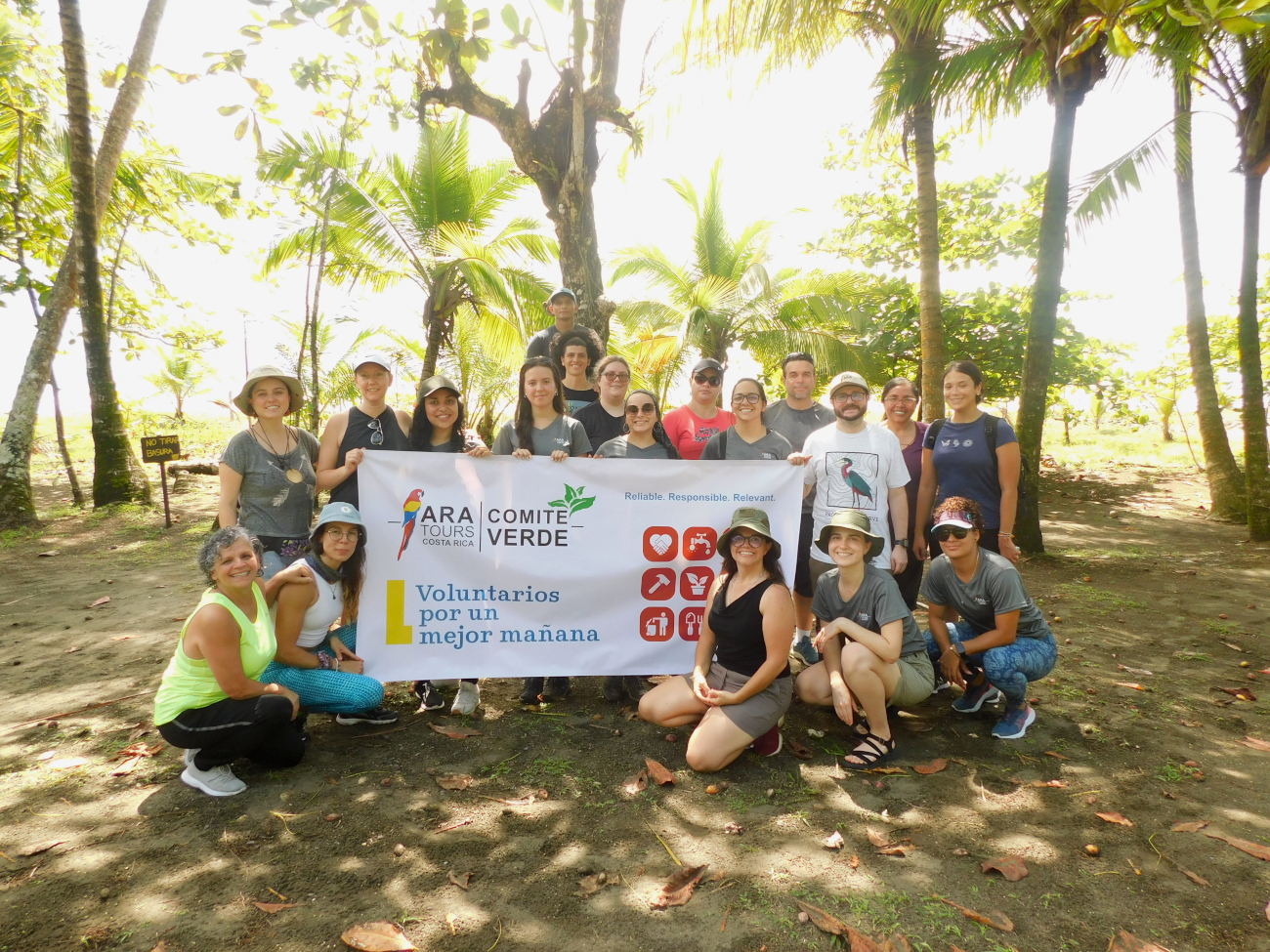
The Pacuare Reserve
This time we went to the Caribbean side of Costa Rica, to the Pacuare Reserve. Similar to the trip to the Tortuguero region with the national park of the same name (located just north of the reserve), the last part of the transfer to the reserve is by boat.
Covering an area of 810 hectares of tropical forest and 6 kilometers of beach, surrounded by the Tortuguero channels, mangroves, wetlands and the Atlantic Ocean (or Caribbean Sea), the reserve is home to an immense variety of species. One of the world's most important nesting sites for the giant leatherback turtle is this very beach in the Pacuare Reserve.
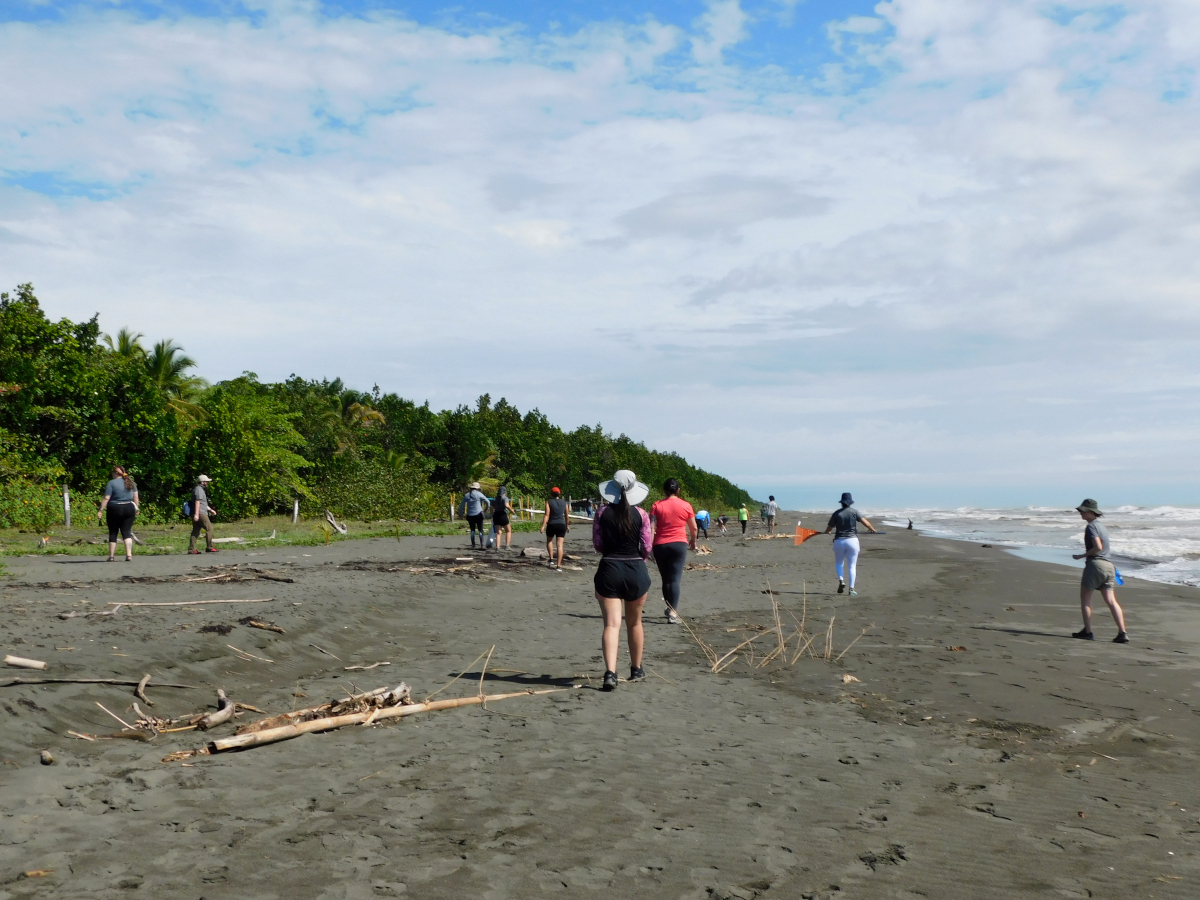
The protection of this endangered species is one of the main goals of the reserve. It is interesting to note that the turtles that hatch on this beach return here years later. To lay their eggs in the sand and ensure the survival of their species.
In addition to turtles, there are many other animals to admire, including crocodiles and the Agami Heron. The Agami Heron Sanctuary is located on an island in the freshwater lagoon and is one of the few accessible nesting sites in the world. A variety of other animals also live in the region and seeing some of them is almost guaranteed.
During their stay in the zone, guests have the unique opportunity to participate in conservation efforts.
Volunteering in the Pacuare Reserve
During our mission, we were able to observe and conduct several scientific activities. However, as it was only one night, our visit was very much limited to the sea turtles.
After locating nesting sites on a stretch of beach several kilometers long, we carefully dug up the eggs and removed them. Data is recorded such as: Where is the nesting site? How many eggs per nest were dug up intact? How many eggs were crushed by the pressure of the sand? And others.
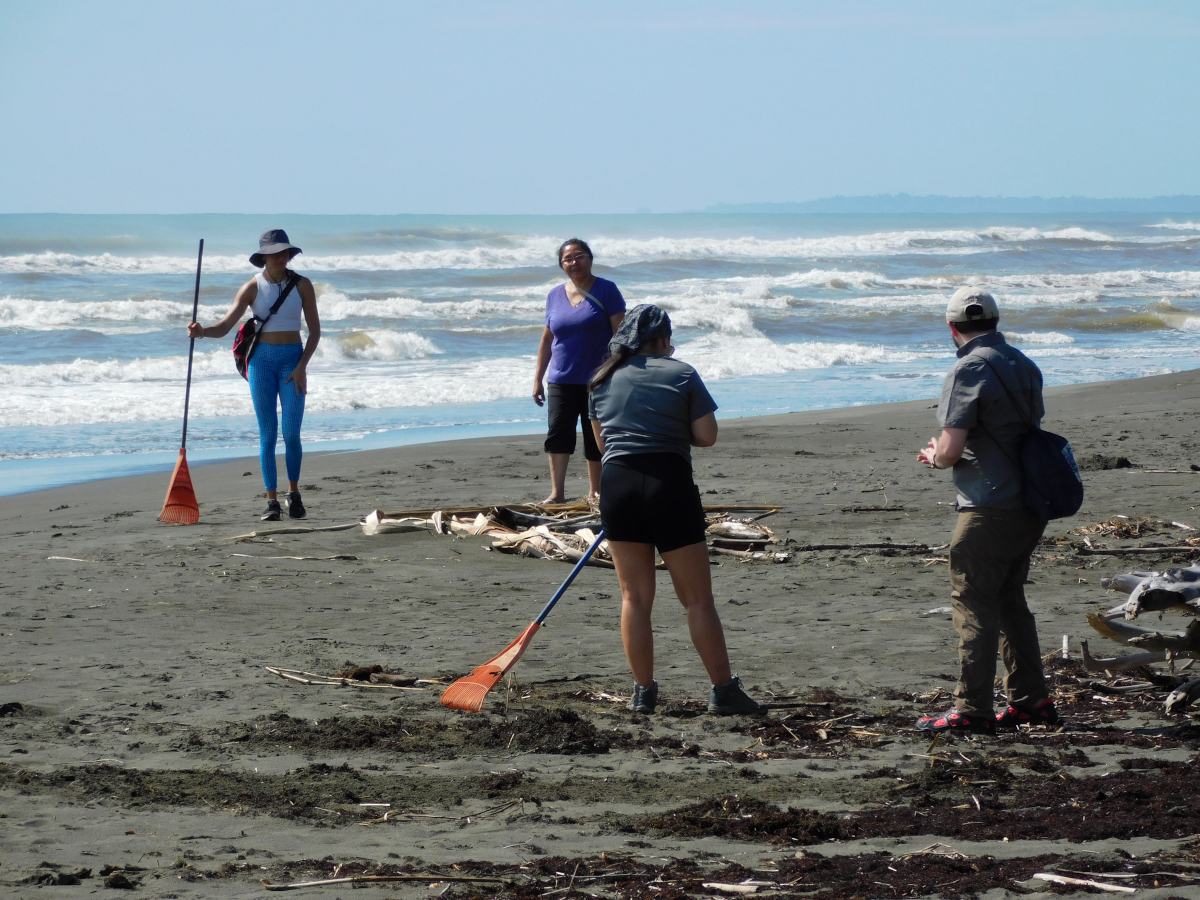
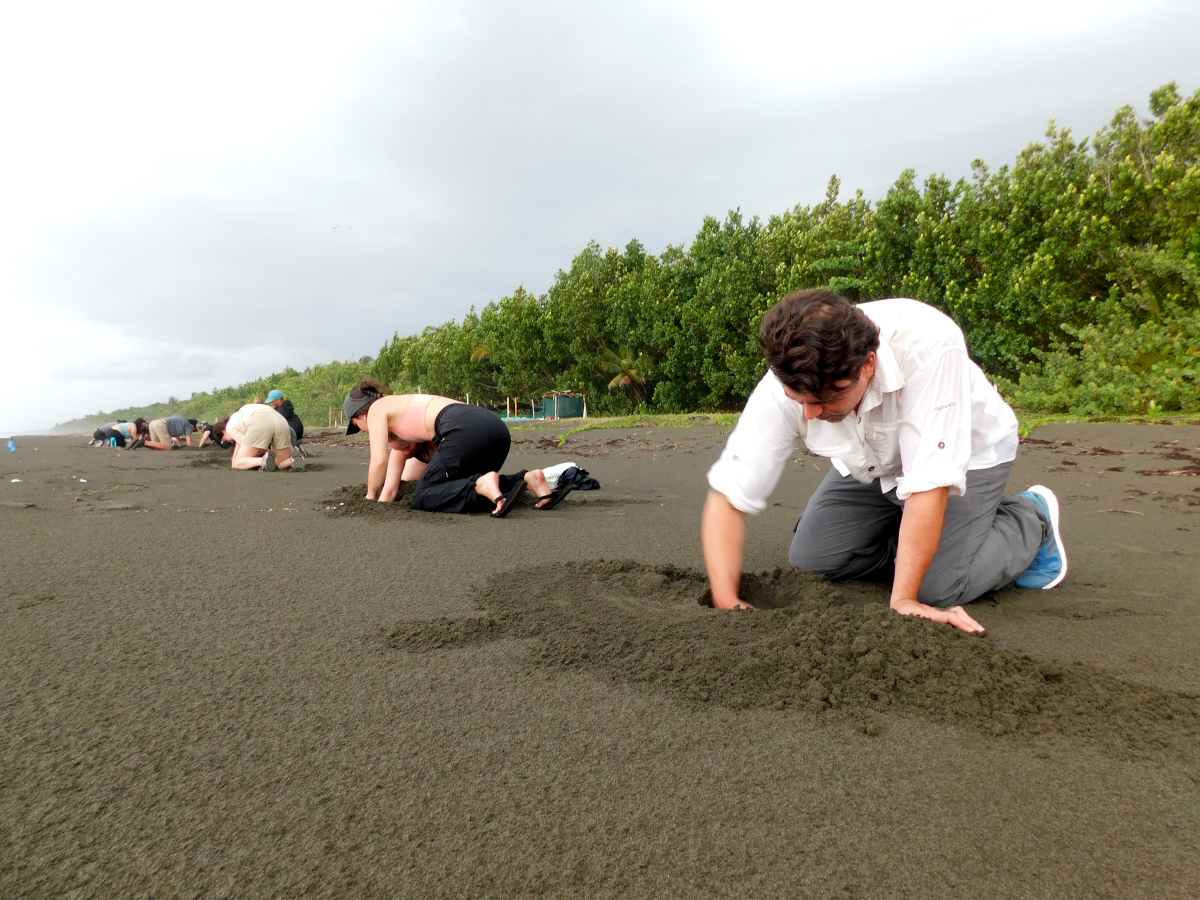
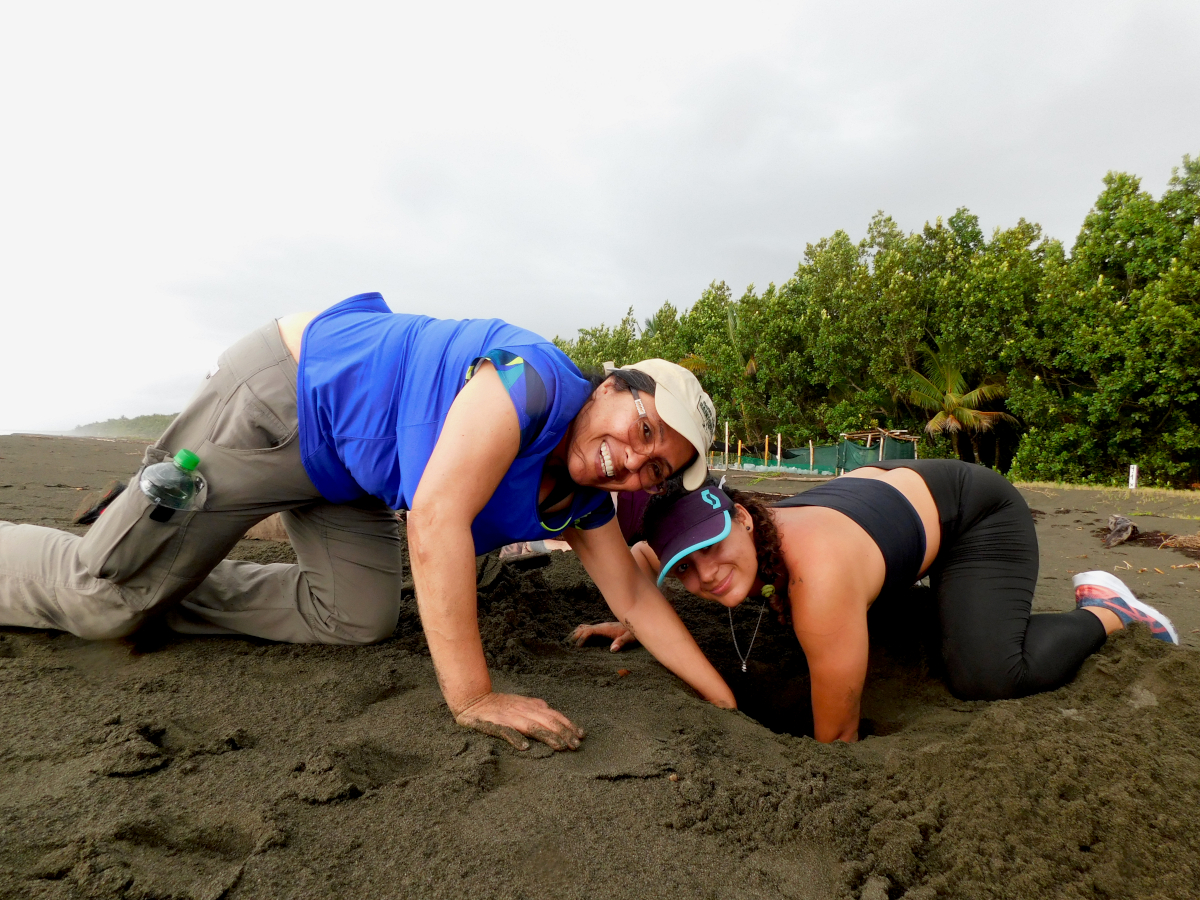
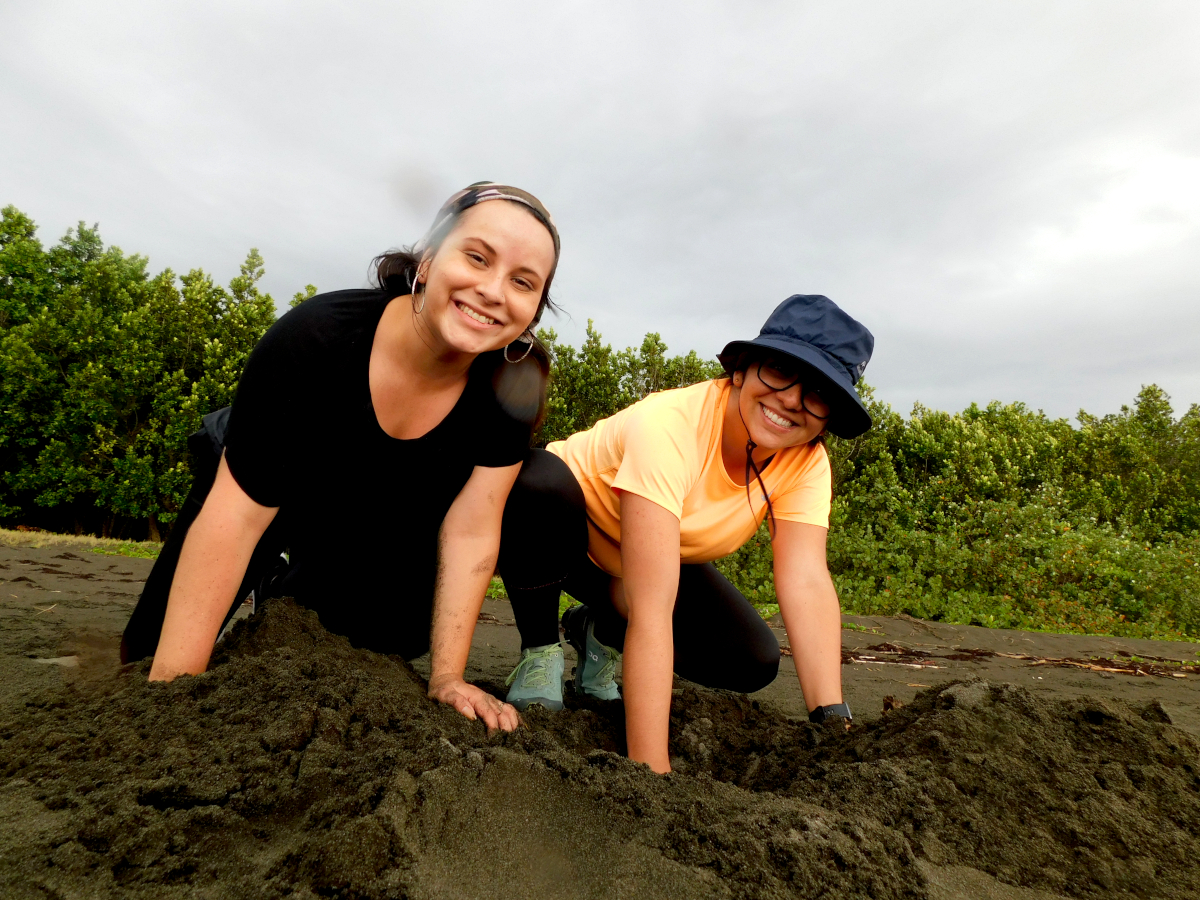
The eggs are again buried in a smaller area that is clearly laid out and easily guarded. Guarded from predators that prey on the small eggs. This ensures that the vulnerable animals are given the best chance in the first minutes after hatching.
Once the incubation period is over, the little turtles are helped to hatch. They are then transported in containers to the beach, where they are expected to crawl the last few meters to the sea by themselves. This is so that later, when they are big enough, they will remember the beach and return.
In this way, the cycle of life repeats itself.
You can be part of it!
If you also want to do something for the conservation of the species, you can become a part of it. In cooperation with the Pacuare Reserve, we offer unique experiences as part of the local volunteer work.
Other activities such as hikes and boat trips are also on the program, where you can get close to the flora and fauna.
You want to get to know Costa Rica and travel here?
No problem! We can help you by preparing an offer without any obligation for you.
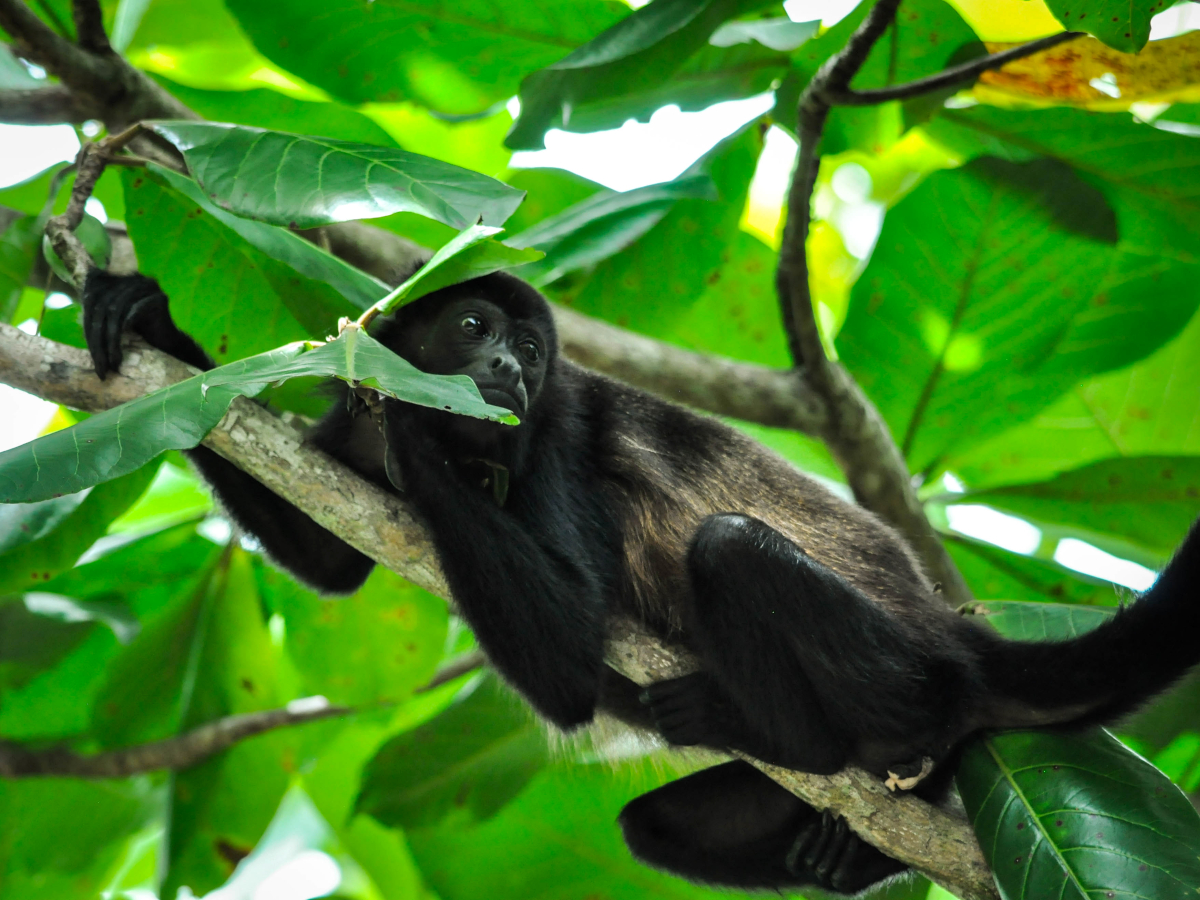
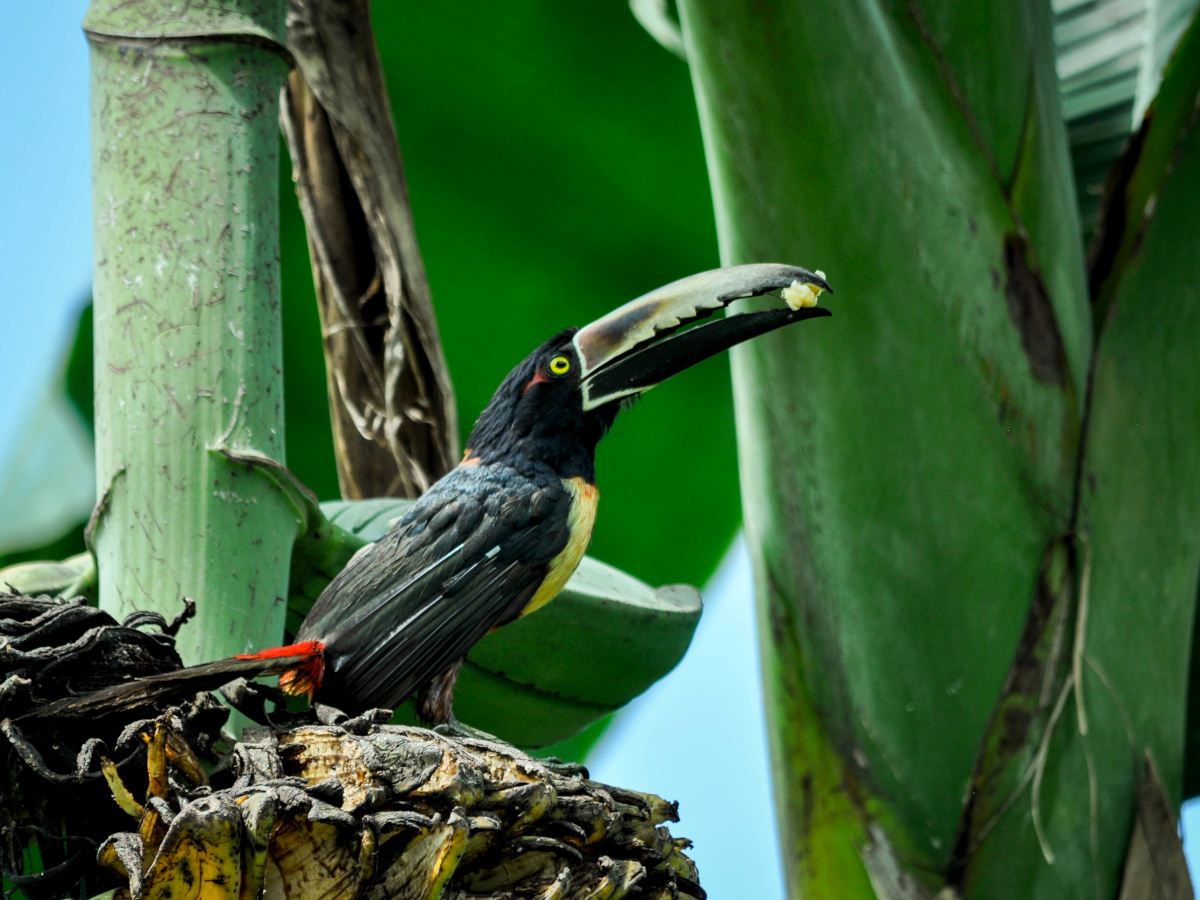
The accommodation
Casa Grande Eco Lodge is the name of the lodge that falls into the more rustic category. Since it works with the highest degree of sustainability, everyday amenities are not always guaranteed. Internet or just light. It is important that you are aware of this. On the other hand, the animals of the surrounding jungle provide an excellent concert of nature sounds and songs to compensate.
The lodge has a simple dining room where traditional meals are served, lovingly prepared by local women who live on the reserve. Meals are shared with volunteers and field researchers. Because the lodge is small, there are set meal times. One of the rules of living together on the reserve is that everyone who enters the dining room takes off their shoes and stands in line. Coffee and tea are available 24 hours a day.
A few meters away from the dining hall is the laboratory, which is also used as a common room for lectures and presentations. Here you can charge your electronic devices and use Wi-Fi. You will also need to take off your shoes.
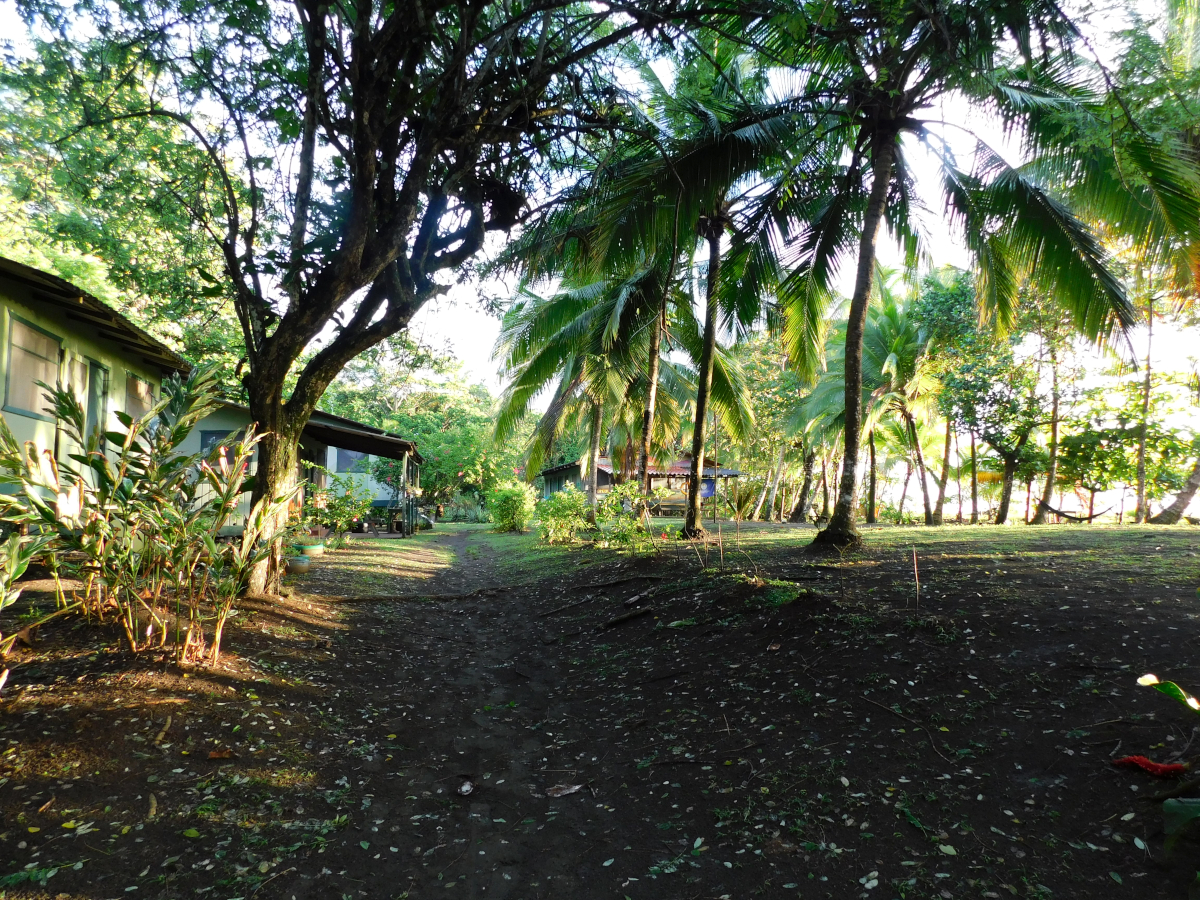
For who is this?
Due to the simplicity of the accommodations, the offer is aimed at nature lovers who can temporarily give up the comforts usually offered in favor of an authentic, scientifically based experience in the wilderness.
The experience
On a guided hike along the trails of the tropical wet forest, where you can listen to the sounds of the ocean and the forest, you will learn about the natural history of a variety of birds, primates, arthropods, and reptiles. You can get close to the largest crocodile population in the Costa Rican Caribbean on a boat tour.
During the night count (Censo, March to July) you will have the opportunity to experience research up close with a field assistant, which will be an unforgettable experience. As part of a team, you will search for turtles at nesting sites on the beach with a research assistant and help record biometric data of the turtles that come to lay eggs, such as number of eggs laid, marking, environmental variables, nest relocation, etc.
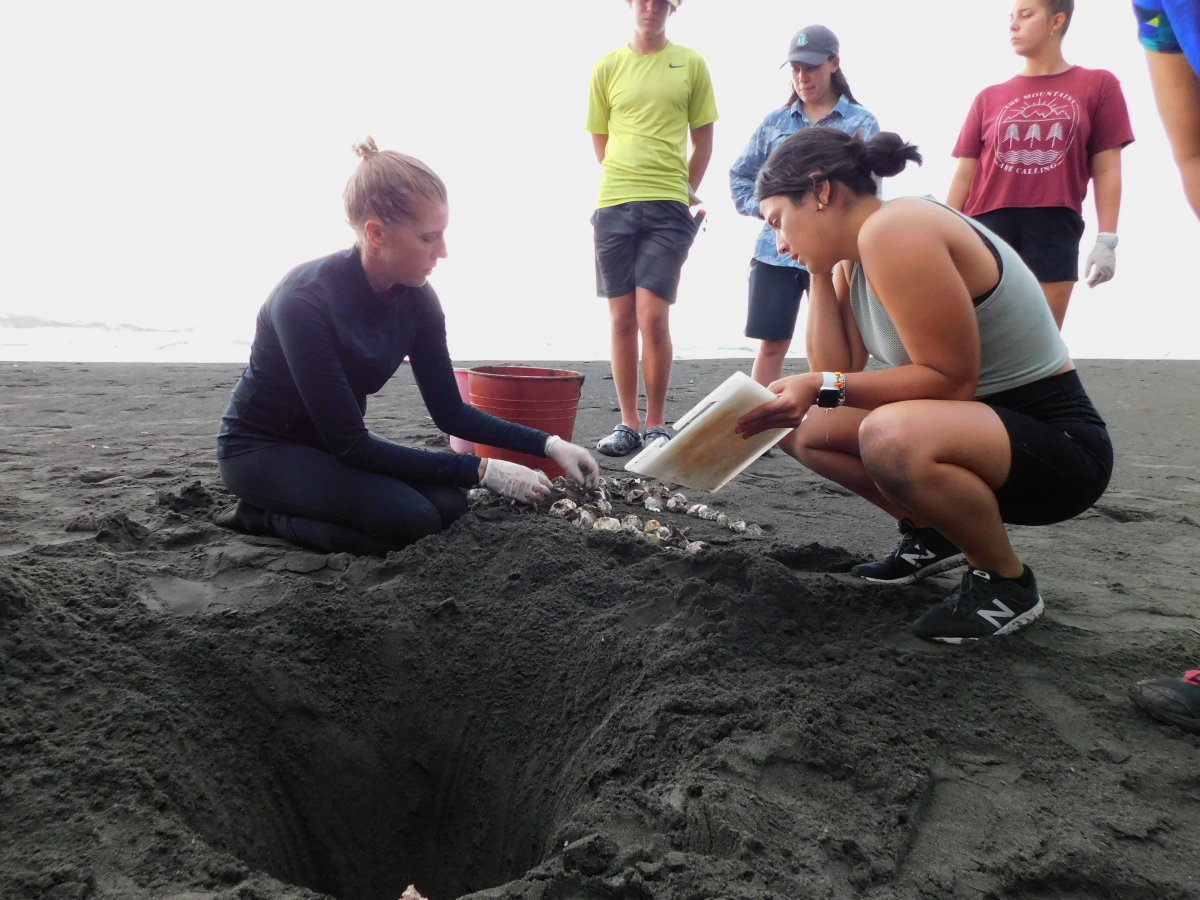
Combinable with your trip
A visit to the Reserva Pacuare is an ideal destination to combine with La Fortuna, Puerto Viejo de Sarapiquí, Turrialba or the Southern Caribbean. The Reserva Pacuare has a secure parking lot at the dock for the water transfer at no extra charge if you arrive in a rental car.
You’ve got the desire to visit Costa Rica?
Would you like to know more about us and why you can trust us for your trip to Costa Rica? Click here for more information:
Concluision & Info
If you are interested in an extraordinary and unique conservation experience,
We recommend the Pacuare Reserve to all lovers of nature and conservation, and to those for whom the basic facilities are not a major inconvenience. It is undoubtedly one of the places with the greatest biodiversity in our Costa Rica.
The Pacuare Reserve is a natural treasure!
Pacuare Reserve
Recommended Blogs
-
Everything to know about the Poás Volcano National Park
-
Costa Rica Bucket-List! Top 5 Things you must do when you travel to Costa Rica!
-
Top 5 Places to fly a drone in Costa Rica
-
9 hotel recommendations at the Pacific Coast of Costa Rica



